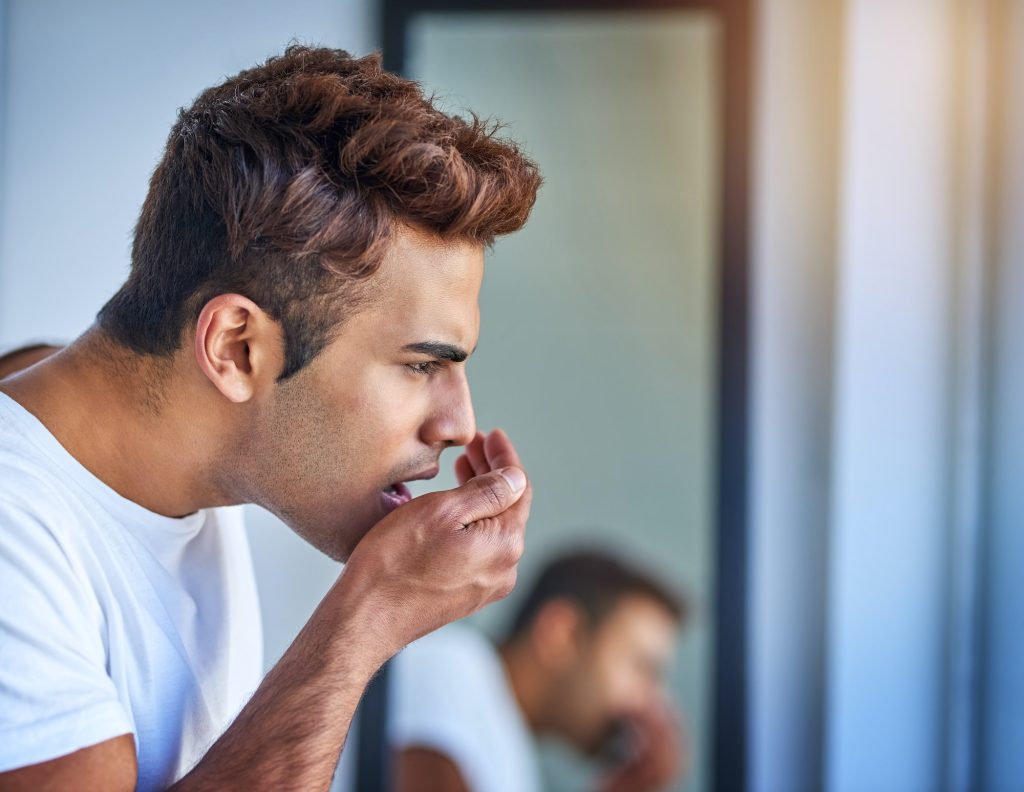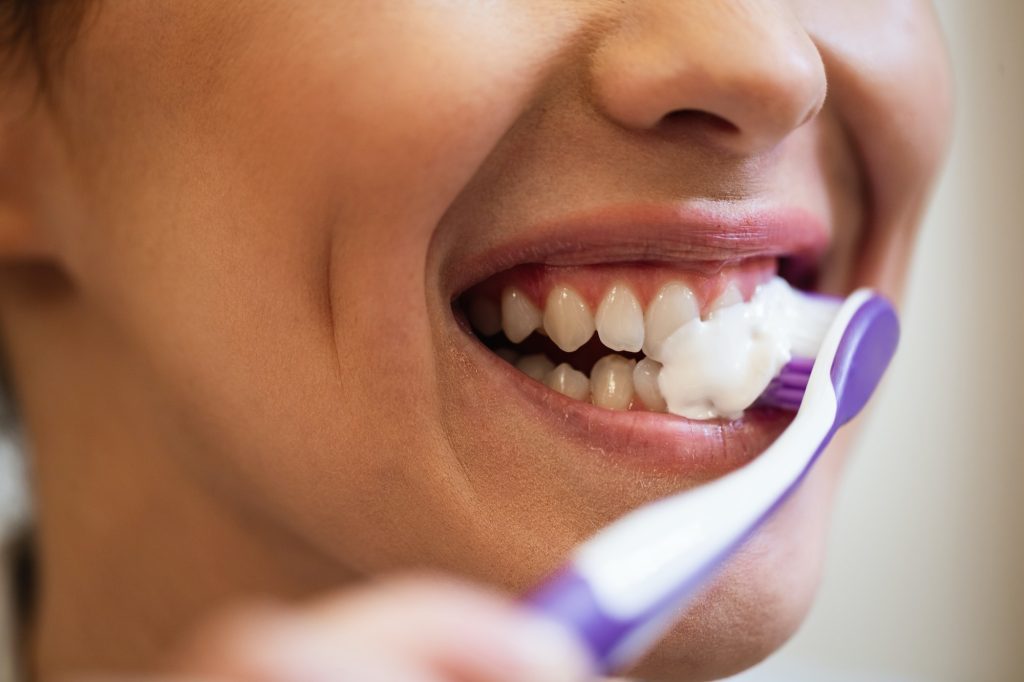A fresh start to the day can come with waking up in the morning, but for many of us, morning breath comes along for the ride. We might question why our breath suddenly gets worse over night when that revolting smell meets us when we open our mouths. We’ll explore the causes of morning breath in this blog post, as well as some strategies for preventing it, as we delve into the science behind it. Morning breath, also referred to as “halitosis,” is a common phenomenon that results from a number of factors: Here is Why Does Our Mouth Smell Bad After Waking Up?

Reduced Saliva Production: Our bodies create less saliva while we sleep, which is important for maintaining good oral hygiene. Food scraps, bacteria, and dead cells that can collect in the mouth and cause foul breath can all be washed away by saliva.
Dry Mouth: A decrease in salivation causes dry mouth, which encourages the development of germs that produce odors. When there is less saliva to clean the mouth, these germs flourish.
Bacterial Activity: Although bacteria are present in our mouths at all times, when we sleep, there isn’t a constant flow of saliva, which encourages bacteria to grow and break down leftover food particles, generating unpleasant compounds like sulfur.
Reduced Swallowing: By transporting saliva and its components through the digestive tract, swallowing also helps keep the mouth clean. Because we swallow less frequently when we sleep, bacteria can build up.
Decomposition of Cells: As part of our mouths’ normal cell turnover, cells inside of them pass away and are expelled. These dead cells build up on the tongue, gums, and cheeks while you sleep, feeding germs and causing bad breath.
Precautions and Treatments:
Even while it’s difficult to totally get rid of morning breath, there are things you may take to lessen its effects:
Brush your teeth, tongue, and gums before bed to eliminate food particles and bacteria that could otherwise cause bad breath in the morning.

Maintain Hydration: Water consumption throughout the day, even keeping a glass by your bed, can help prevent dry mouth and promote salivation.
Use mouthwash: A mouthwash with an antimicrobial agent can assist in lowering the bacterial burden in your mouth before bed.
Tongue scrapping: You can get rid of bacteria and dead cells that cause bad breath by gently scrapping the surface of your tongue.
Regular Dental Exams: Routine dental examinations help detect and treat oral health problems that may be aggravating morning breath.
As a result of bacterial activity, cell breakdown during sleep, and decreased saliva production, morning breath is a common occurrence. You may greatly lessen the effects of morning breath and start your day feeling fresher by being aware of these variables and establishing appropriate oral hygiene habits. It’s important to keep in mind that while having occasional foul breath is natural, continuous halitosis may indicate a more serious medical condition that needs to be evaluated with a dental professional. This is Why Does Our Mouth Smell Bad After Waking Up?









